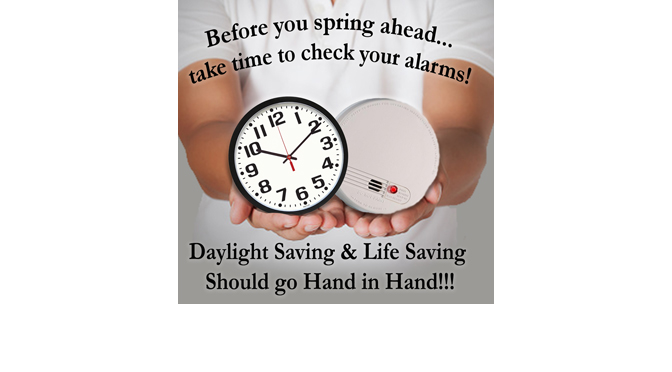Twice a year we get all frantic about making sure we change our clocks to the correct time. Seriously it is a big deal nobody wants to chance being late for work or a big meeting. Yet somehow we forget to give our smoke detectors the same feverish attention that we give our clocks. It would leave one to assume it is better to be dead rather than late… That rational makes no sense, so here are a few tips from the NFPA on why it is important to make sure our smoke detectors are in good working order.
Changing smoke alarm batteries at least once a year, testing those alarms and reminding others to do the same are some of the simplest, most effective ways to reduce these tragic deaths and injuries.
Additionally, the International Association of Fire Chiefs recommends that smoke alarms in homes be replaced every 10 years and to have both ionization and photo electric smoke alarms to alert people to all types of home fires.
Smoke alarms by the numbers
- In 2007-2011, smoke alarms sounded in half of the home fires reported to U.S. fire departments.
- Three of every five home fire deaths resulted from fires in homes with no smoke alarms or no working smoke alarms.
- No smoke alarms were present in more than one-third (37%) of the home fire deaths.
- In one-quarter (23%) of the home fire deaths, smoke alarms were present but did not sound.
- In reported home fires in which the smoke alarms were present but did not operate, almost half (47%) of the smoke alarms had missing or disconnected batteries. Nuisance alarms were the leading reason for disconnected smoke alarms.



